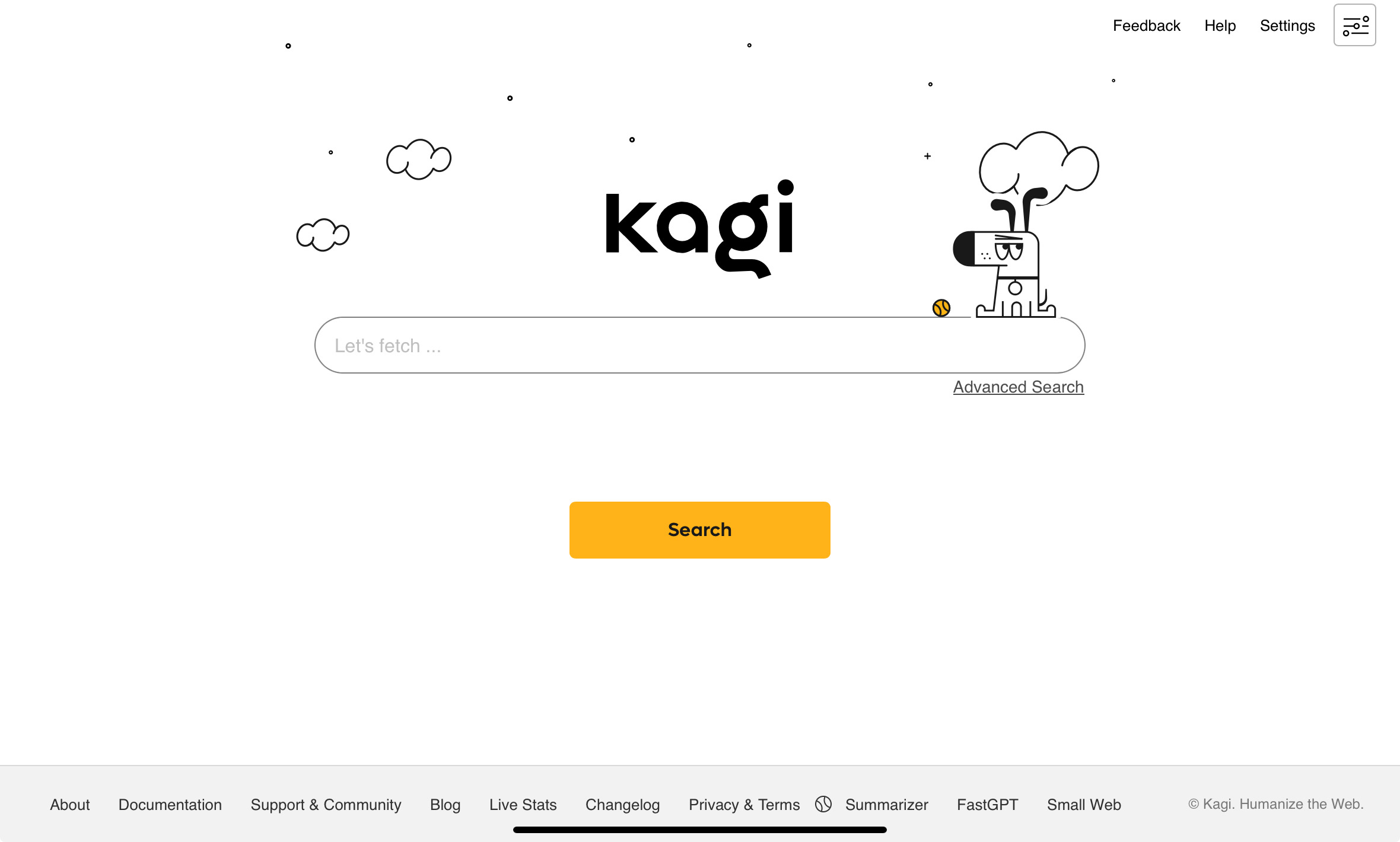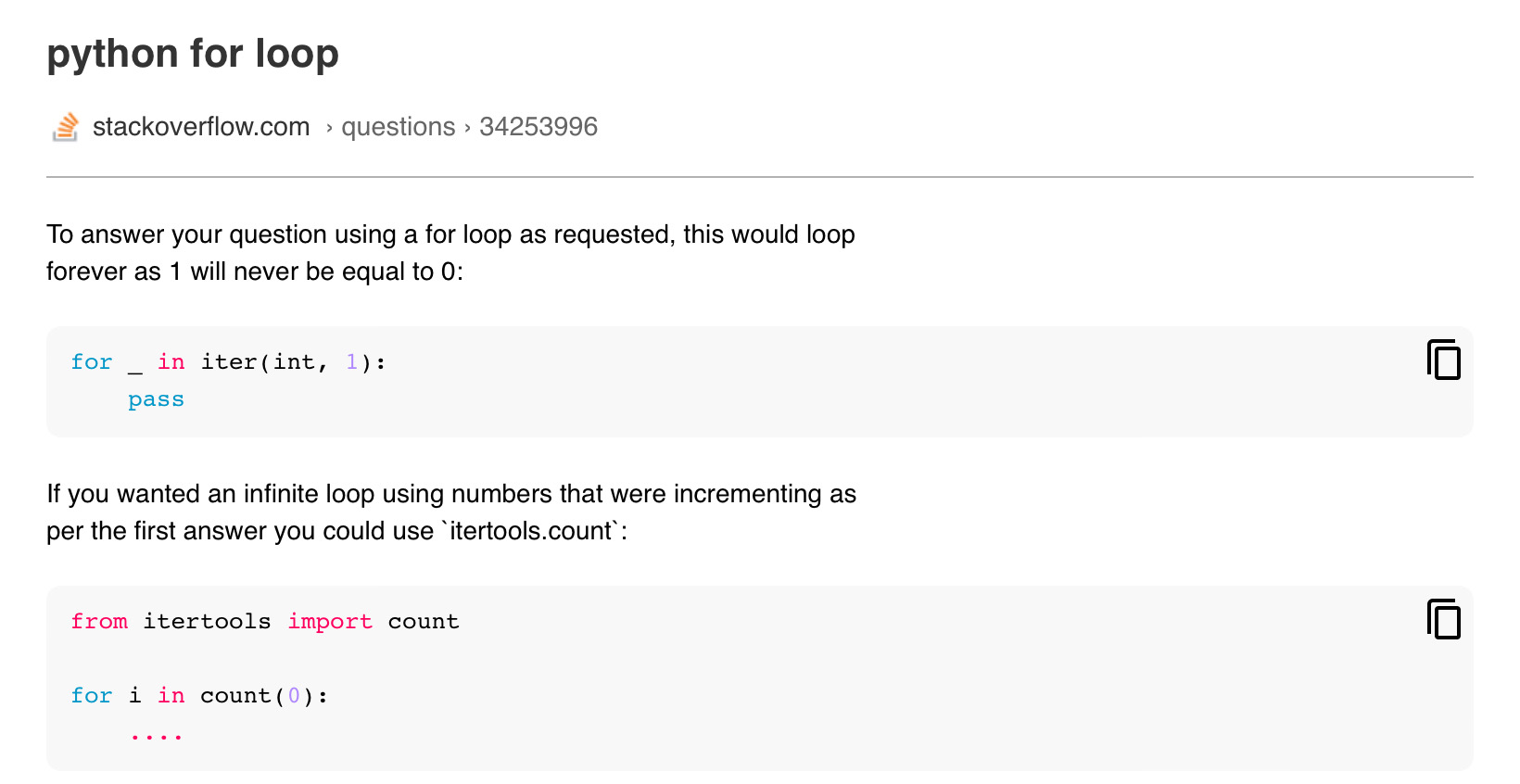It’s a not a news anymore that Google, the search engine which once was the best available, doesn’t work anymore for a lot of users.
Its results are full of ads, they are not optimised for users, nor for advertisers and sometimes they also include malware. Their main goal is to boost ad revenue.
So why it’s still the most used search engine in the world? Well that’s “easy”, because Google pays (a lot!) to be the default search engine everywhere and users are often lazy to change their habits or don’t know alternatives are available.
Kagi
My impressions
After hearing a lot of good things about this search engine (especially from the folks on Mastodon), I decided to give it a try (there is a trial plan available with 100 search queries included, so don’t take my word and please test yourself!).
The first impression was terrific. I was finally able to find what I was looking for with the second or third (and sometimes with first) link in the results.
With Google I usually had to scroll past a few ads, then ignore old web pages (but with a good SEO), then go past another couple of irrelevant links and finally find what I was looking for. But the point is that you never know how bad the results are until you click, read a few lines and take a decision. At that point you already have wasted a lot of time just to find the right thing.
With Kagi I just save a lot of time, get better results and nobody is tracking what I search for to serve me related ads at later time.
The customisation features make the results I get even better and more tailored to my needs.
Why choosing Kagi
Privacy: there are no ads in the results and there is no tracking in place. What you search is private. While Kagi relies on some existing search engines (Google, Bing, Brave etc…) they use them as a source of data and all the queries are always anonymised before being sent to them. Once their requests are back, results are aggregated and customised for the user.
User custom results: users can decide to exclude certain websites from ever appearing in their results, or rank higher or lower certain other websites. Tired of always seeing that click-bait website appearing? You can block it! Do you prefer to first look stuff in Wikipedia if available? You can rank it higher etc…
Lenses: once you get your results back, you can decide to filter them further by using lenses. For example you can use the “Recipe” lens, to search specifically for recipes, or the “Discussions” one to search inside discussion forums.
Instant answers: sometimes you can get an instant answer when you search for something, which already includes a lot of information, without the need to click on the found link. For example, searching for Python for loop will give you this:
Summariser: this feature is still experimental, but I think it’s one of the best features available (AI haters please look somewhere else!). Kagi Summariser is able to create a summary of almost any public resource you can provide: a link to a web page, a podcast, a YouTube video etc… it uses AI to transcribe audio/video and then it creates a summary of it. It saves me a lot of time, depending on what I’m looking for.
Using Kagi with Safari
I use Safari as my main browser and unfortunately this browser doesn’t let you add any custom search engine, so Kagi engineers had to use a quick hack. They released a Safari extension which intercepts any query sent to your default engine and redirects it to Kagi. My personal advice? Change your default engine to DuckDuckGo or something else you trust if you don’t want to leak stuff to Google.
Pricing
Kagi doesn’t offer a free plan (it only has a trial with 100 queries included) and it has three paid plans:
- Starter: it costs 5$/month and includes 300 queries/month
- Professional: it costs 10$/month, has unlimited queries and includes AI tools like Kagi Summariser
- Ultimate: it costs 25$/month, it’s like Professional plan but you get preview access to features which are still in development
I personally have the Professional plan.
Conclusions
I hope I stimulated your curiosity to at least convince you to use the trial. I’m curious to hear your opinions.

